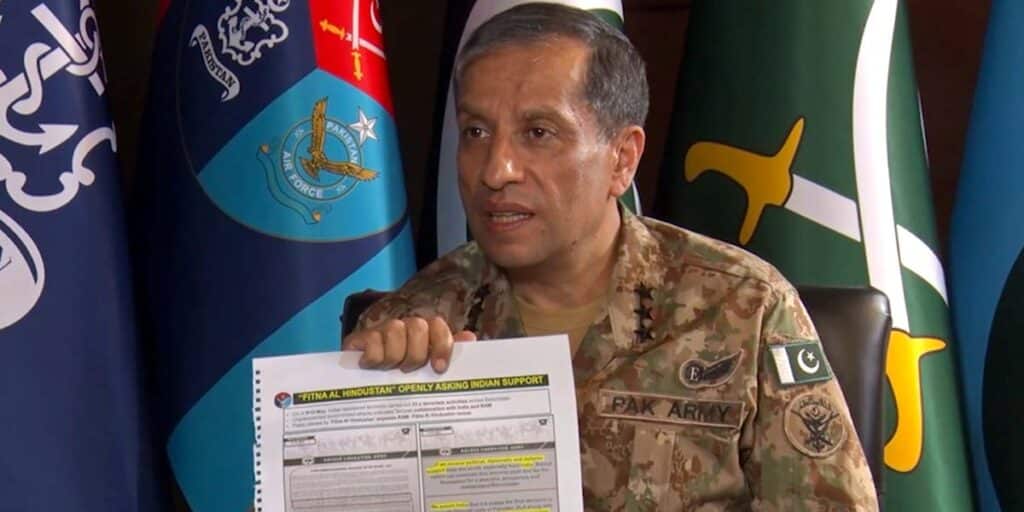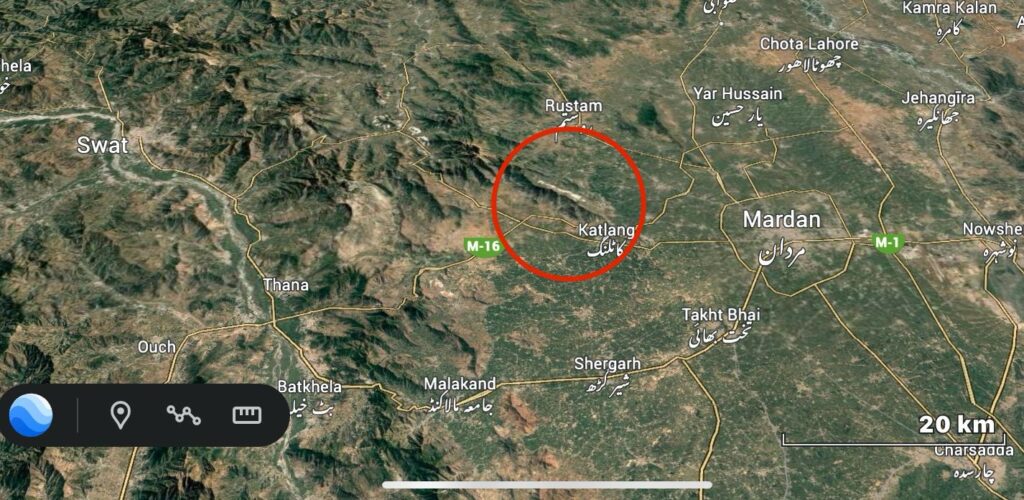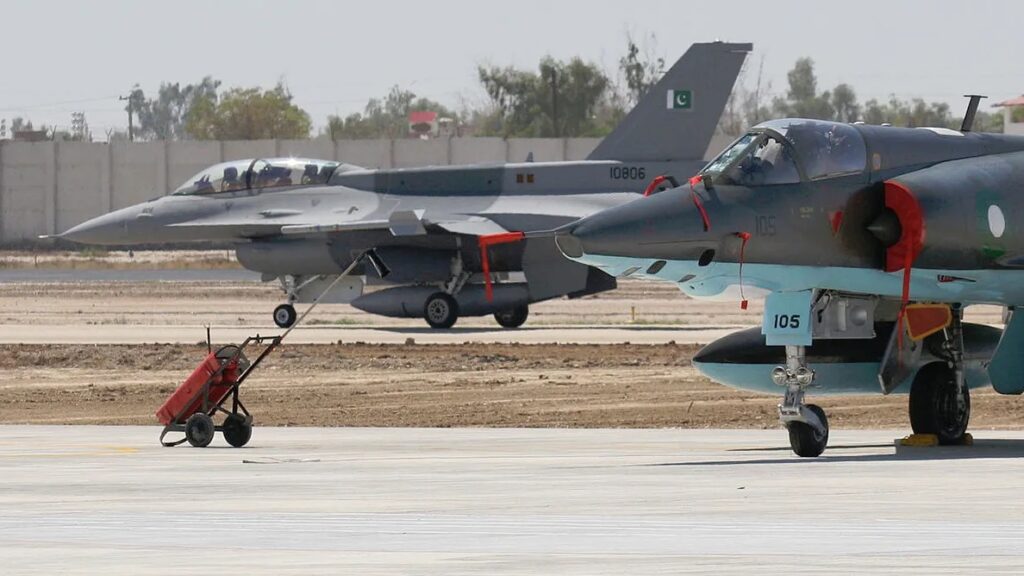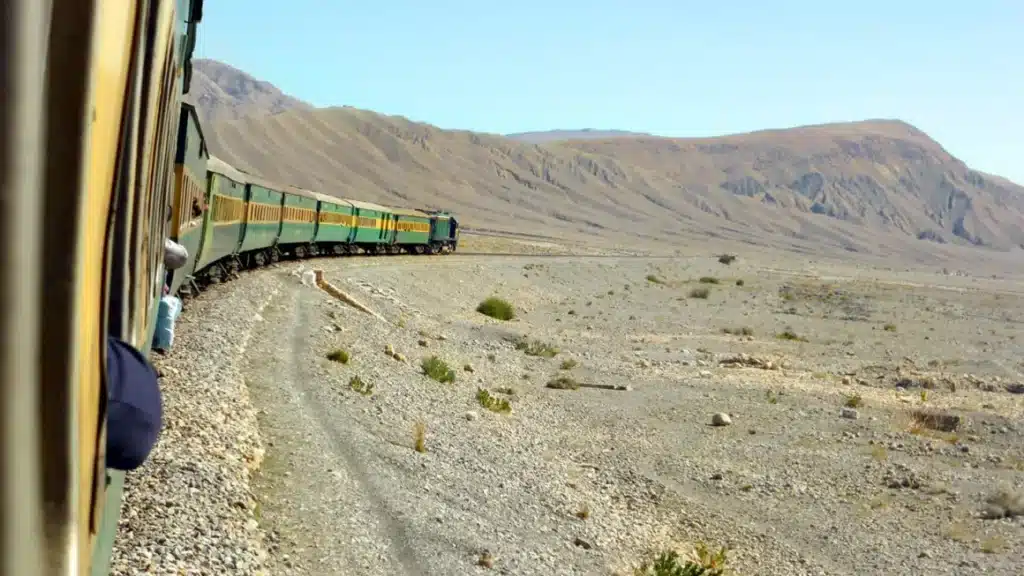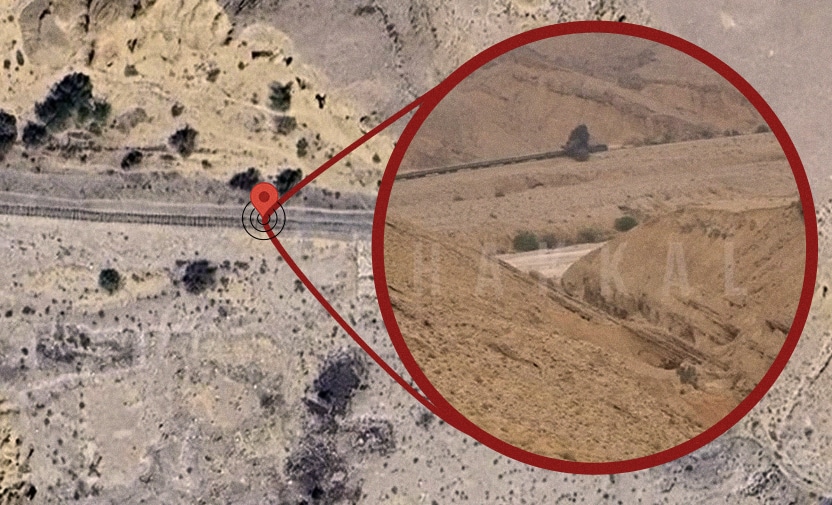RAWALPINDI: Director General of Inter-Services Public Relations (DG ISPR) Lieutenant General Ahmed Sharif has said that India is using terrorism as a policy tool to destabilise Balochistan and hinder Pakistan’s progress.
In an exclusive interview with Al Jazeera, he presented concrete evidence and cited undeniable evidence of the Indian secret agency’s-RAW, role in funding, arming, and guiding its proxies, Fitan al Hindustan, to wage a hybrid war.
Justifying his arguments, apart from presenting concert evidence, he questioned who benefits from these acts of terrorism in Pakistan? It is India, he said in the same breath.
He said that India’s strategy is to keep Pakistan entangled in the menace of terrorism so that Pakistan’s true potential remains unrealised. This prevents Pakistan from reaching the destiny owed to its 250 million people and allows the power gap between the two countries to widen. India uses this imbalance to act as a regional hegemon and dictate its own terms.
This broader strategy serves India well. State-sponsored terrorism has become a key policy tool for India against Pakistan. Historically, this is not new. “It didn’t start just in the last two decades. Go back to 1971—what was the Mukti Bahini? It was Indian state-sponsored terrorism. Prime Minister Modi has publicly acknowledged and even boasted about India’s support to the Mukti Bahini”, he said.
In contrast, he continued, Pakistan is fully committed to fighting terrorism. “We are working to uproot extremism from our society. India, over the years, has taken full advantage of portraying Pakistan as a hub of Islamic extremism. But Indian terrorism in Pakistan has many faces.”
Let me walk you through these faces with evidence.
The first face is transnational killings. Even countries like Canada and the United States have acknowledged Indian involvement. Pakistan went on record much earlier. In 2024, RAW handler Ashok Kumar Anand and accomplice Yogesh Kumar were identified. They were involved in financing terror and planning assassinations in Pakistan—clear evidence was presented publicly.
A couple of months ago, an investigation revealed another Indian terror cell led by Major Sandeep, a serving Indian military intelligence officer. He and his team planted IEDs across Pakistan. Transaction records and audio instructions were made public, showing how operations were conducted from Lahore to Quetta.
Serving non-commissioned Indian officer Sakhwinder and other soldiers were also involved. Their communications, funding trails, and instructions have all been intercepted and made public, the Pakistan Army spokesperson said, adding statements from Indian leadership further prove this strategy. Ajit Doval and Indian Army Chief Vikram Singh have spoken about destabilising Pakistan, particularly Balochistan. These aren’t just offhand comments—they represent a policy.
Sarfraz Bangalzai, a former terrorist leader who surrendered with 70 others, publicly confessed that India funded and planned their operations. He also revealed how Indian agencies exploit Baloch women for such nefarious purposes.
Gulzar Imam Shambay, the former head of the Baloch Nationalist Army, also surrendered. He shared in chilling detail how he traveled to India in 2017, met RAW officials, and received funding and operational support.
Najibullah also came forward this year with the same story.
Let’s not forget Kulbhushan Jadhav, a serving Indian Navy commander. His confessions and cross-examinations have been widely shared. He confirmed RAW’s involvement in orchestrating terrorism inside Pakistan.
Indian-provided passports, treatment records in Indian hospitals, and details of commanders like Bashir Zeb, Aslam Achoo, and Malik Faridun—all point to direct Indian support.
This is not speculation; it’s evidence already shared in public and in diplomatic dossiers.
On May 11, the BLA released a statement saying, “If India decides to eliminate Pakistan, BLA and this entire nation will attack from the western border. We will become India’s practical military arm.” This is a designated terrorist group openly pledging allegiance to India. India has neither denied nor condemned.
DG ISPR said that the BLA spokesperson, Bahot Baloch, regularly appears on Indian TV. Their terror attacks—on Khuzdar schoolchildren or the Jaffar Express—are glorified by Indian media.
Commenting on Fitna al Khawrij, DG ISPR said that its head, Noor Wali, has explicitly stated that they seek help from India. He described how they receive funding and direction from Indian handlers. This coordination between Fitna-ul-Khawarij and Fitna-ul-Hindustan is real, he said.
Everyone saw the horrific suicide bombing of schoolchildren in Khuzdar. It was directed by Indian handlers. All the evidence is there.
He further went on to say that Indian media, while glorifying such incidents. Indian media and social media—they celebrate every terror attack in Pakistan. India is the only country that celebrates suicide bombings and the murder of children in its neighbourhood, he maintained.
This Indian terror enterprise is not only well-funded, but it is also visible across multiple domains—media, finances, and operations.
Since January 2024, Pakistan has suffered 5,436 terror incidents. In response, 1,987 terrorists have been neutralized. Many others have been arrested or are under interrogation. This level of sustained terrorism cannot happen without foreign sponsorship—India’s sponsorship.
The mastermind behind this enterprise is Ajit Doval. He is the architect of every act of terror not just in Pakistan but across the region.
Pakistan, unlike India, is not a reckless or irresponsible state. India is quick to blame its internal failures on external forces like Pakistan, instead of addressing its own injustices against Muslims, Kashmiris, Sikhs, Christians, and Dalits.
India’s internal oppression is the root cause of its own terror problems. But instead of fixing them, India externalizes the blame and dangerously lowers the threshold for conflict with Pakistan.
This blame game risks turning any single act of violence into a potential war between nuclear states. It threatens the lives of 1.6 billion people across the region.
In contrast, Pakistan, he said, has acted with maturity and responsibility. During Operation Sandhu, Pakistan responded with strategic clarity and calm. Our actions speak louder than words. We don’t brag, we act.
These terror attacks are not isolated—they are part of a long chain led by India and orchestrated by people like Ajit Doval.
In open societies like Pakistan, social grievances, poverty, and exploitation can be manipulated. Our problem is compounded by the presence of foreign actors who serve as hired guns.
The Khawarij twist Islam to justify terrorism. But Islam is a religion of peace. These terrorists stray beyond Islam’s teachings and wage a war that has no basis in Islamic law.
This distortion is not new. Khawarij have historically murdered Muslims based on their warped views. Today’s Fitna Khawarij are a continuation of that legacy, he concluded.

